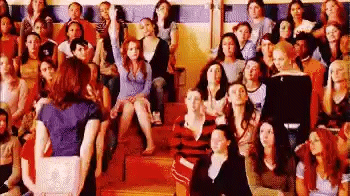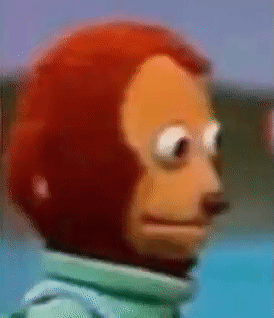The New Fatherhood is an open and honest conversation about modern fatherhood, with a bunch of dads figuring it out along the way. Here's a bit more information if you're new here. You are one of the 3,136 dads (and curious non-dads) signed up. If you've been forwarded this by someone else, why not get your own?

I’m occasionally asked “What’s one piece of advice you would give new parents?”
It’s an easy answer. The same nugget I wish I’d been given eight years ago: “Buy a small notebook, keep it handy, and write down things you notice.” It doesn’t need to be every day, once a week, or with any kind of regular cadence. Simply start recording the things that itch your brain. They may be significant milestones, but they’ll just as easily be minor, almost imperceptible, events that you alone observed. Another wonderful side effect of this habit? As they grow older you’ll end up with a book filled with the hilarious things your little ones say. “Future you” will thank “today you” for capturing them: fleeting moments, forever enshrined.
I didn’t do it. I wish I had. I got there eventually, I suppose? A year and change spent at here, standing at the keyboard, writing down observations about fatherhood to anyone who’ll read them. Somewhere in the region of 60,000 words, give or take. There were times when it came easy. There were times when it didn't. But a weekly deadline is a powerful motivator. One the biggest personal realisations over that time is that I’d still be doing this, even if you stopped reading it. The regular act of organising disparate thoughts into essays helps to weave loose parenting threads together and be more intentional about the parent I want to be. It’s like Frank Ocean, confessing to his mother on the final track of “Blonde” (the greatest album of the 2010’s, according to me; and also Pitchfork):
“Play these songs, it's therapy, mama
They paying me, mama
I should be paying them
I should be paying y'all, honest to God”
I’ve worked in advertising for a while, but my role has always been—in a gross oversimplification—a thinker, not a doer. I help doers do better work. I have always lacked what the creative industry calls the “craft skills” necessary to make a great piece of work myself. But, on starting this newsletter, it soon dawned on me that it was the greatest opportunity I’d ever had to close what Ira Glass called “The Gap”
(If you haven’t seen this, go watch it. 2 minutes well spent.)
“Everybody I know who does interesting, creative work, they went through years where they had really good taste and they could tell that what they were making wasn't as good as they wanted it to be. They knew it fell short. Everybody goes through that.
The most important thing you can do is do a lot of work. Do a huge volume of work. Put yourself on a deadline so that every week or every month you know you're going to finish one story. It is only by going through a volume of work that you're going to catch up and close that gap, and the work you're making will be as good as your ambitions.”
I spent 2021 on a weekly deadline, with a clear focus on the craft. I wrote a lot. I read a fair chunk too. I read books from comedians, philosophers, and poets; books about fishermen, wannabe chefs and psychedelic explorers; books where personal stories were regaled with vivid prose and deep vulnerability. And I read books on how to write.
The one book that continues to work it’s way deeper inside my brain, as I slowly savour every page and paragraph—methodically tagging favourite passages with neon blue stickies, pencil notes forged in margins like I am 17 and in English Literature class once again—is “Several Short Sentences About Writing” by Verlyn Klinkenborg. An author, academic and former editor of The New York Times, he wrote in praise of paying attention, and understanding that "everything you notice is important.”
“Noticing means thinking with all your senses.
it requires a suspension of yearning
And a pause in the desire of pouring something out of yourself.
Noticing is about letting yourself out into the world,
rather than siphoning it into you
In order to transmute it into words.”
This book has given me permission to slow down, to allow thoughts and feelings the space required to become clear and insightful, and to get those words down on paper habitually (at long last). It’s reprogramming how my mind operates, on the fly, changing the way I perceive the world, and the interactions I make as I move through it.
It has, without question, made me a better writer. But becoming a better dad was an unintended side effect. Because your ability to notice is impaired if you’re mentally somewhere else, and my commitment to writing this newsletter has become a reward multiplier for presence of moment. Would I have been able to write a rather entertaining (imo) essay on the joys of storage solutions, or a reflection on the joy that a piano brought to the house, if I hadn’t been truly paying attention?
As Klinkenborg says—and Tony has beautifully illustrated:
“It’s catching your sleeve on the thorn of the thing you notice,
And paying attention as you free yourself.“
3 things to read this week
“Seeking a Father For My Child (Relationship Optional)” by Katharine Dion in The New York Times. I recently joined a non-fiction writing group, and whilst I was somewhat familiar with the NYT’s “Modern Love” column, I had no idea at what a cultural touchstone it is in the non-fiction writing community: it receives more than 9,000 submissions a year, has led to approximately 60 book deals, and showcases “the work of so many unknown writers who are telling their most important story.” This is one such tale: “We don’t fall in love or have a baby to have our points of view and preferences affirmed. We do it, at least a little bit, to soften our singular, lonesome grip on reality and invite in the unexpected, the undesirable and the inexplicable.”
“The Seven Habits That Lead to Happiness in Old Age” by Arthur C. Brooks in The Atlantic. Another must-read entry in Brooks’ “How to Build a Life” series. A list of seven habits—relatively easy to apply—that will pay dividends as you get older. “The best way to maximize your chances of happiness in your 70s is to pursue all seven of these goals with fervor, sort of like balancing your 401(k).”
“The Lunch Lady From the High School in “Euphoria” Announces This Week’s Menu” by Colin Heasley in McSweeney’s. We’ve been slowly inching our way through HBO’s “Euphoria.” Remember, pre-kids, when you could truly binge-watch a show? “Another episode?” “Well we shouldn’t, but it’ll finish before 2am, so why not!?” Now it’s more like one episode every few nights, and if you really want to go wild, try a double bill, but you’ll be feeling it on the school run in the morning … I digress. It’s a great show. Highly recommended. The Euphoria dress code has already spawned a sea of memes and this essay should bring a smile to those with even a passing knowledge of the show. Haven’t watched the finale yet. No spoilers!
Good Dadvice
The “still cranking out ‘Surface Pressure’ like it was ‘Get Lucky’ in 2013” edition

One thing to watch with the kids this week
Here’s 10 minutes of odd deep-sea creatures from in and around the Monterey Bay Aquarium, coupled with an appropriate ambient soundtrack. Some truly strange looking fish down there.
Previously on The New Fatherhood
Last weekend I wanted to know about memorable teachers from your childhood. Some fantastic stories shared in the thread, with enough great writing to fill a newsletter of it’s own. Here’s a taste:
“He smoked cigars, which in winter when you went past his office (different times, the 90s) would have this remarkable warm feeling too. He was a legend, almost a movie version of a teacher. You could knock on his door, he'd have a coffee, always and a cigar smell and haze, you could go to him about anything.” Roberto on Mr Ashworth
“He took us on trips to the WWI battlefields (with everyone else obviously) to France and Belgium, but not before bringing the whole thing to life for us and just instilling the nuance and difficulty in making a simple us-and-them narrative to war. He was the first to recognise that my rebellious attitude towards religion at school was just me finding my way and he would gift me books on Buddhism and introduced me to Marcus Aurelius.” Ivor on Mr McCabe
“He ditched the curriculum entirely and instead had us all rehearse all year long to perform Macbeth. Line memorization, public speaking, costume/set design, hair/makeup, stage direction…. I learned so much in that class, but most importantly, he instilled within me a confidence the likes of which carried me through some of my most challenging times.” Hunter on Mr House
A final thought
I was moved this week by this video of a father—called up to service in Ukraine—saying goodbye to his daughter. I’m not planning on posting through a crisis, but if you’re looking for ways to help, here are a few.

Say Hello
How did you like this week’s issue? Your feedback helps me make this great.
Loved | Great | OK | Meh | Bad
Follow The New Fatherhood on Twitter and Instagram. Send me links, comments, questions, and feedback. Or just reply to this email.
Branding by Selman Design. Illustrations by Tony Johnson. Subscribe to support The New Fatherhood and join a private community of like-minded fathers all helping each other become the best dads we can be. If you want a subscription, but truly can't afford it, reply to this email and I will give you one, no questions asked. If you’d like to underwrite one of those subscriptions, you can donate one here.










Good suggestion: the notebook and notes, however banal our kids cuteness may seem. I wish I'd done it: my youngest of three sons is 32. But I have a second chance with grandkids and I'm gonna do it.
A very touching piece.
I finally got round to doing this when my son was 4 yo, recording anything and everything from Birthdays & Christmases to the cute things he says and what he eats for breakfast. They seem like small things but over time the small things become the big things.